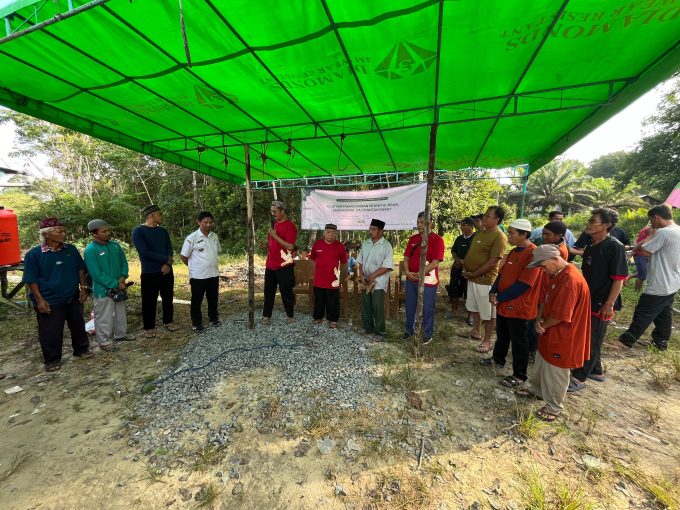
This month, a team from the Faculty of Philosophy at Universitas Gadjah Mada (UGM), comprising lecturers and students, commenced a series of community service activities across various regions in Indonesia, including Singkawang, West Kalimantan, on June 19.
The community service activities in Singkawang focused on improving the community’s welfare through sustainable cooperative initiatives. The team organized a socialization event on cooperative formation at Al-Fattah Mosque in Nyarumkop Village, which was attended by local residents, mosque administrators, and religious study group members.
“I believe that strengthening the community’s economy can be initiated through cooperatives, starting from mosques as familial and emancipatory social spaces,” said Dr. Misnal Munir, who led the socialization session.
This initiative is a continuation of the community service program conducted in 2023 in another area of Singkawang, namely Semelagi Kecil Village. The current team consisted of four lecturers: Dr. Sonjoruri Budiani Trisakti, Dr. Rizal Mustansyir, Dr. Misnal Munir, and Rangga Kala Mahaswa, S.Fil., M.Phil.
Demographically, Singkawang is known for its rich diversity in ethnicities, religions, races, and traditions, as well as various regional potentials that could drive its local economy.
However, the economic condition of the residents in Nyarumkop Village remains low. According to the village profile data, the average monthly income of the residents is only IDR 300,000, reflecting a lack of understanding and capacity to develop the region’s potential.
As an integral part of a democratic and equitable national economic system, cooperatives play a crucial role in advancing community welfare, reducing social inequality, and enhancing participation and control among members in joint ventures. Through democratic and participatory principles, cooperatives are expected to be effective instruments for strengthening economic and social sustainability.
“Residents of Nyarumkop need to enhance their understanding so they can develop enterprises that can serve as stable income sources, starting with establishing and growing cooperatives,” explained Sonjoruri, the Head of the Community Service Team.
In conjunction with the cooperative formation socialization, the program also included training on animal sacrifice procedures. The session began with a presentation of training materials by Gema Bestari, S.Pt., M.M., followed by a practical demonstration of proper and ethical animal slaughter techniques. The primary objective of this training was to improve knowledge and understanding of maintaining the quality of sacrificial meat while upholding animal welfare, ensuring the meat produced is halalan thayyiban (lawful and wholesome).
The Al-Fattah Mosque community warmly welcomed this program, hoping it would continue in the future. The activities concluded with the symbolic handover of souvenirs, training modules, worship equipment, and cooperative grant funds.
